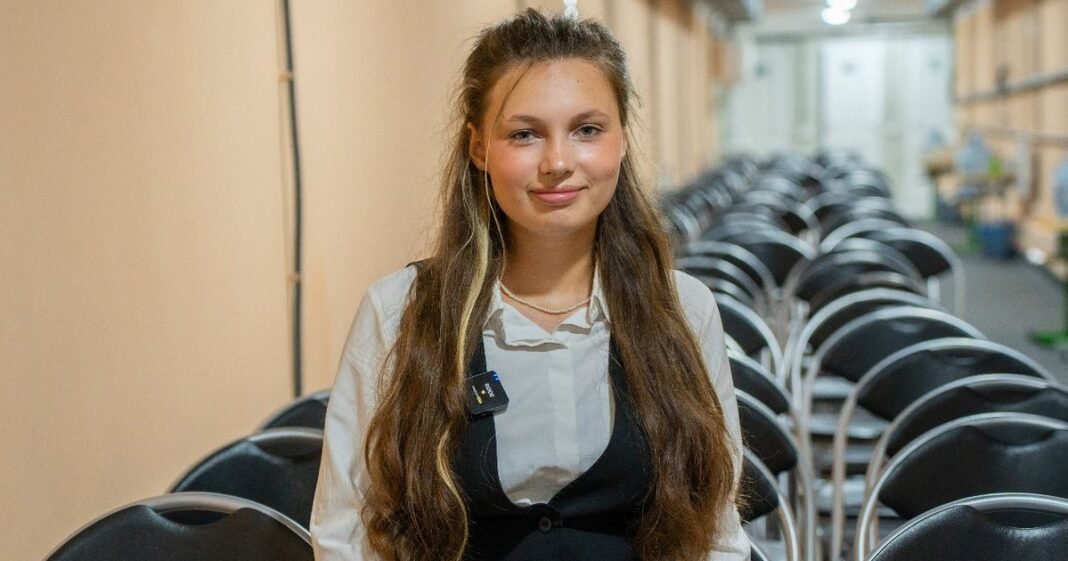Daria’s recollections of pre-war school days in Ukraine have faded into obscurity amidst the prolonged conflict. Over three years since Russia’s invasion, the 16-year-old has returned to a revamped school in Mykolaiv, equipped with an underground shelter to shield students from potential Kremlin attacks. For Daria, her life is now demarcated by a distinct ‘before’ and ‘after’ timeframe, devoid of cheerful school memories due to the overarching impact of the war.
Engaged in preparations for Ukraine’s National Multi-Subject Test, Daria expresses her relief at being back in a physical classroom after grappling with the challenges of online learning. Mykolaiv Lyceum No.53, refurbished with financial support from UNICEF amounting to $134,798 [£100,258], has reopened its doors to accommodate over 400 students and educators within its rehabilitated 320 square-meter shelter.
Unlike students in less tumultuous regions, the pupils in Ukraine’s schools have had to adapt to the ongoing conflict. With nearly 1,000 students, Lyceum No.53 now operates in two shifts to cater to both in-person and remote learning needs. Despite the city of Mykolaiv surviving initial capture attempts by Russia, recent attacks have underscored the necessity for fortified school shelters, a joint effort by UNICEF and local authorities to ensure a safe return to face-to-face education.
For fifth-grader Roman, the reopening of school signifies a joyous reunion with friends and the anticipation of new experiences with classmates. Assigned the role of classroom coordinator during air alerts, Roman exemplifies the resilience and adaptability displayed by children in navigating safety protocols within the school shelter.
Accompanied by her mother, Zlata, a six-year-old student at School No.53, embarks on her educational journey with a sense of familial legacy and the promise of a nurturing learning environment. Following a period of closure due to the pandemic and subsequent invasion, the school has undergone renovations facilitated by UNICEF funding to ensure a conducive learning setting for students amidst uncertain times.
In Ukraine, in-person learning is contingent upon the provision of shelter for air alerts, a stark reality for students in a country marred by conflict. As the new academic year commences, the hope for uninterrupted education remains a beacon of light for children grappling with the trauma of war, as articulated by UNICEF Representative Munir Mammadzade.
Teacher Nataliia Martyniuk underscores the significance of physical classroom interactions in fostering social and emotional development among students, noting the palpable difference in demeanor and engagement observed upon the resumption of in-person schooling. The return to face-to-face learning symbolizes a crucial milestone for students, marking a shift towards normalcy and interpersonal connections after years of remote education.

